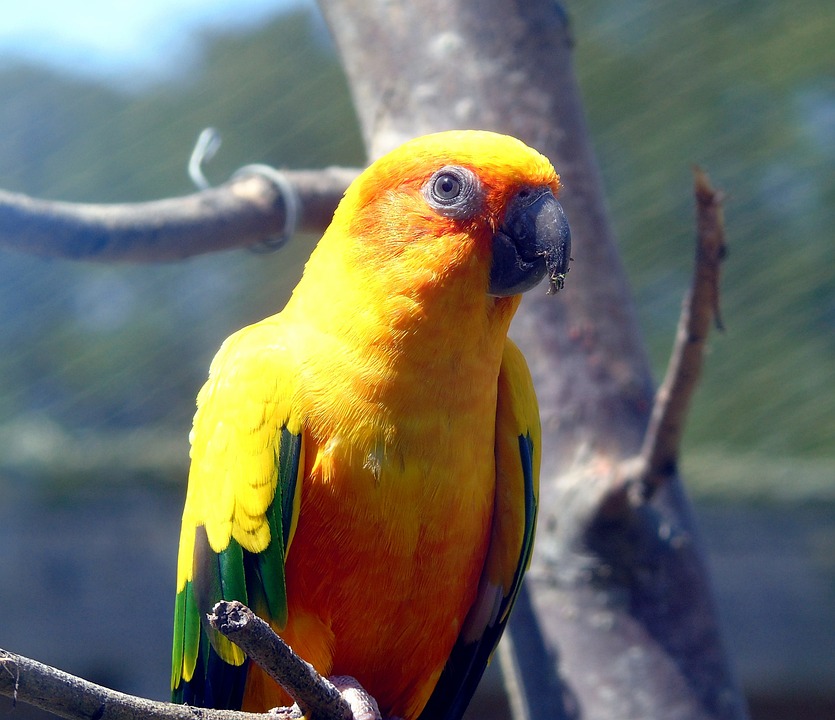Owning a parrot comes with the responsibility of understanding and meeting their needs, including their sleep patterns. Sleep is crucial for the overall well-being and health of these intelligent and social creatures. In this guide, we will delve into the fascinating world of parrot sleep, explore their natural behavior, and provide valuable insights for bird owners. Whether you are a new parrot owner or have been caring for these beautiful creatures for years, this article will help you better understand and cater to their sleep requirements.
Why Understanding Parrot Sleep Patterns is Important
Parrots have unique sleep patterns that differ from those of humans and other animals. As highly social and intelligent beings, they require an appropriate sleep schedule to maintain their physical and mental health. Understanding their sleep patterns is crucial for providing a suitable environment that promotes restful sleep, reduces stress, and ensures their overall well-being. Additionally, by recognizing abnormal sleep behaviors, bird owners can identify potential health issues and seek timely veterinary care.
Natural Sleep Behavior of Parrots
Parrots in the wild have evolved complex sleep patterns that are influenced by their natural environment. Understanding these patterns will help bird owners create a conducive sleep environment for their feathery companions.
Polyphasic Sleep: Unlike humans who have consolidated sleep, parrots exhibit polyphasic sleep, which means they have multiple sleep episodes throughout the day. They alternate between periods of wakefulness and restful sleep, usually in short intervals.
Daytime Napping: Parrots typically take short naps during the day, which may last anywhere from a few minutes to a couple of hours. These naps allow them to recharge and conserve energy.
Nocturnal Sleep: While parrots are not strictly nocturnal, they do require uninterrupted darkness and quiet during their main sleep period. In the wild, this usually occurs during the night to protect them from predators.
Light Sleepers: Parrots are light sleepers and are easily disturbed by noises and sudden movements. They have a keen sense of their surroundings even during sleep, which helps them stay vigilant against potential threats.
Creating a Restful Sleep Environment for Parrots
To ensure your parrot gets the sleep they need, it is essential to create a restful sleep environment. Consider the following factors when setting up their sleeping area:
Quiet and Dark: Choose a quiet and dimly lit area for your parrot’s sleep cage. Avoid placing it in high traffic areas or near noisy appliances to minimize disturbances.
Cover the Cage: Covering the cage with a breathable fabric or a specifically designed cage cover can simulate the darkness that parrots experience in the wild. This helps them feel secure and promotes uninterrupted sleep.
Consistent Schedule: Establish a consistent sleep schedule for your parrot by ensuring they have a set time for lights out and wake-up. Consistency helps regulate their internal clocks and promotes healthy sleep patterns.
Temperature and Ventilation: Ensure the sleeping area is kept at a comfortable temperature, neither too hot nor too cold. Good ventilation is important to maintain fresh air and prevent overheating.
FAQs about Parrot Sleep Patterns
1. How many hours of sleep do parrots need?
Parrots generally require around 10 to 12 hours of sleep per day. However, the exact sleep duration can vary depending on the species, age, and individual needs.
2. Why is it important to cover the cage at night?
Covering the cage at night helps create a dark and secure environment that mimics the natural sleeping conditions for parrots. It reduces disturbances that can disrupt their sleep and promotes a restful night.
3. Can parrots sleep with lights on?
Parrots require a dark environment to achieve quality sleep. Exposure to artificial light during sleep can disrupt their sleep patterns and affect their overall well-being. It is recommended to keep the sleeping area dark.
4. What should I do if my parrot is experiencing sleep disturbances?
If your parrot is experiencing sleep disturbances, it is important to evaluate their sleep environment and make necessary adjustments. If the issues persist, consult a veterinarian to rule out any underlying health conditions.
Understanding and catering to your parrot’s sleep patterns is essential for their overall health and happiness. By providing a suitable sleep environment and recognizing any deviations from their natural sleep behavior, you can ensure your feathered friend gets the rest they need to thrive. Remember, a well-rested parrot is a happy parrot!









